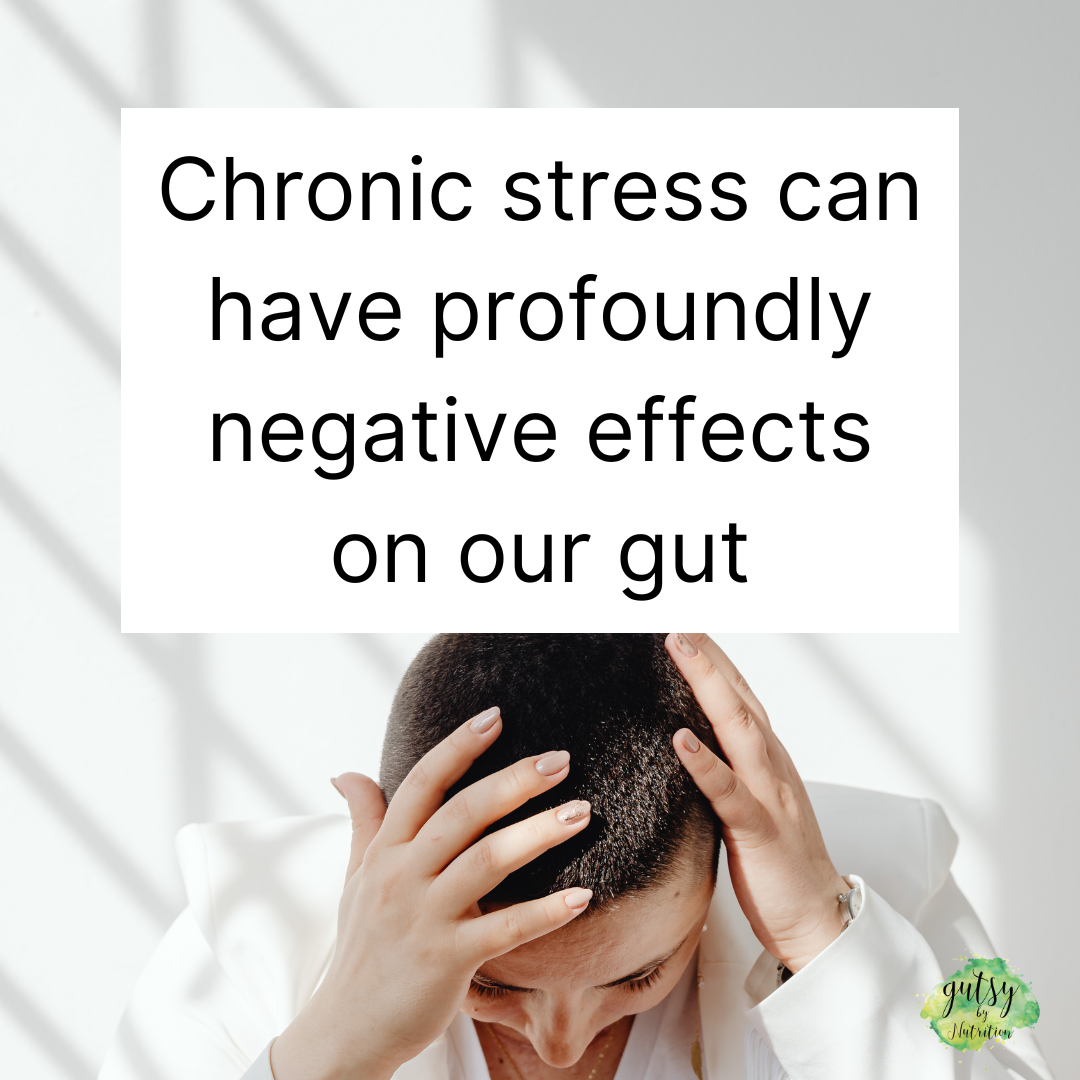Ongoing stress has profoundly negative effects on the gut
Chronic stress can alter our gut microbiome composition and function, compromise barrier integrity and alter communication with our brain.
Many of us don't believe we're stressed as it's become our norm. But professional examination and/or testing could prove differently.
how does stress impact the gut?
Chronic stress can disrupt the balance of our gut microbiota, leading to dysbiosis, an imbalance in microbial composition and diversity. Stress hormones, particularly cortisol, favour the growth of potentially harmful microbes and reduce beneficial bacteria. This can contribute to gut symptoms and lead to wider health problems.
Our gut barrier regulates the passage of nutrients, toxins and microbes from the gut into the bloodstream. Chronic stress compromises gut barrier integrity, leading to intestinal permeability (leaky gut). This allows harmful substances to leak into the bloodstream, triggering immune responses and inflammation throughout the body, and possibly leading to IBS, IBD and much more.
Chronic stress can also dysregulate the gut-brain axis, a bidirectional communication system between our gut and central nervous system, altering neurotransmitter signalling, hormone production and gut immune responses. This can lead to gastrointestinal symptoms like abdominal pain, diarrhoea and constipation, and impact our mood as well as broader health.
The gut-brain axis also plays a role in the development and regulation of mental health conditions like anxiety, depression and mood disorders. The inflammation and immune activation that result from dysbiosis and leaky gut have been implicated in mental health disorders. Additionally, the dysregulation of neurotransmitter and hormone signalling in the gut-brain axis can affect mood and emotional well-being.
So make those lifestyle and life changes to reduce stress, and see the health benefits in return.

